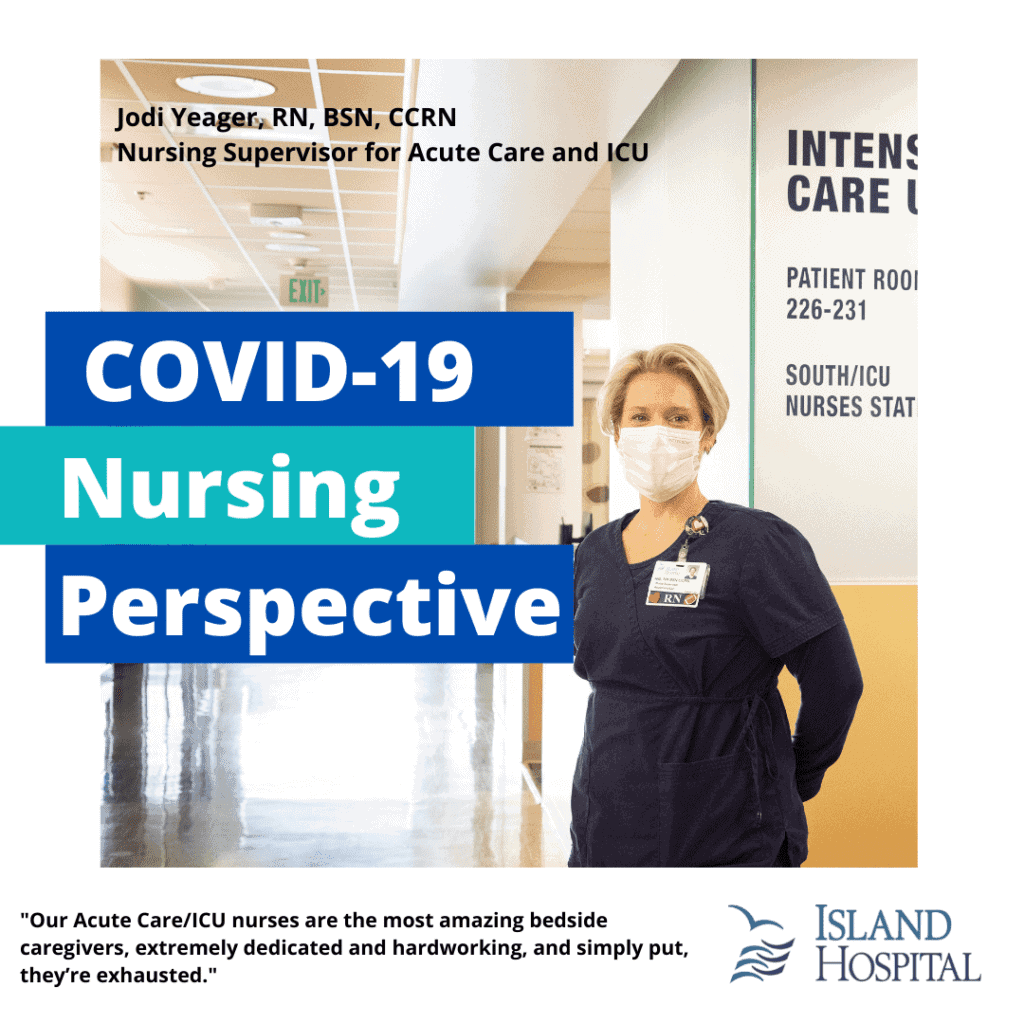COVID-19 Nursing Perspective

Like most of my colleagues, I got into nursing because I wanted to help people understand their own bodies. The best part of my job is more about the patients than it is about medicine. I love educating and caring for them so that they can learn to manage their own health. But COVID has put a strain on that.
Here’s the thing: COVID-19 doesn’t just affect COVID patients.
It impacts our staff. It impacts families who are not allowed to be with their loved ones. And it impacts non-COVID patients.
August was devastating; we saw more COVID cases that month than we had in any other month since March 2020. And we’ve had higher numbers of sicker, non-COVID patients, who’ve put off coming to us, so their symptoms worsened. Our Acute Care/ICU nurses are the most amazing bedside caregivers, extremely dedicated and hardworking, and simply put, they’re exhausted.
COVID patients are not allowed visitors. This means there’s no family members or friends to be that second set of ears, to encourage the patient to stay hydrated or switch positions and to follow the treatment plan. There’s no one to keep the patient company. These support systems are crucial to the healing process, and their absence stresses the entire care unit system.
In the ICU, our COVID patients require a high level of care, in addition to more lab work. They are more likely to develop pneumonia and heart problems (because the heart is trying to compensate for the lungs). The care of hospitalized COVID patients can include Remdesivir, Dexamethasone, oxygen therapy, as well as rest, hydration, antipyretics, proning, monitoring and supporting activities of daily living, but it can also mean total care for a ventilated patient.
And we’re talking about a virus. This isn’t something that can be erased with a magic pill. It takes time and supportive care. We continue to get questions from patients and families based on misinformation. One of the simplest and most effective things a COVID patient can do is called proning: lying on your stomach to relieve pressure on the lungs. But it’s been difficult to convince some patients to do even this.
If I could say anything, I’d encourage people to not believe everything they read on the internet and social media. Consider your source. Our treatments and guidelines are aligned with University of Washington, an established and reputable source.
Our nurses love what they do and even though they are tired, our care team will continue to do everything possible to provide the highest quality care to all of our patients. It’s what we do.
 Jodi Yeager, RN, BSN, CCRN is the Nursing Supervisor for Acute Care and ICU. Originally from Sandpoint, Idaho, Yeager has been with Island Hospital since 2008. She also served as the Interim Director of ICU at Island Hospital from January – August 2021.
Jodi Yeager, RN, BSN, CCRN is the Nursing Supervisor for Acute Care and ICU. Originally from Sandpoint, Idaho, Yeager has been with Island Hospital since 2008. She also served as the Interim Director of ICU at Island Hospital from January – August 2021.
Published on October 5, 2021
